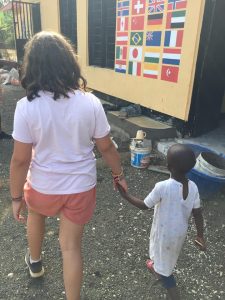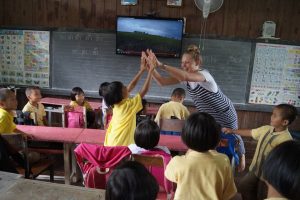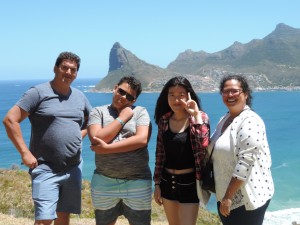Discover the benefits of a family humanitarian travel. Strengthen bonds, create memories, and contribute to global well-being.
Introduction to Family Humanitarian Travel
Family humanitarian travel has seen a significant increase in recent years, attracting families seeking meaningful experiences. These trips offer an unparalleled opportunity to explore the world while making a tangible impact on communities in need. They not only foster personal growth and cultural understanding but also strengthen family bonds and create lasting memories.
What is Family Humanitarian Travel?
Humanitarian travel with family involves participating in missions aimed at providing aid, support, and development to underprivileged communities around the world. These missions can range from medical aid trips to educational programs and infrastructure development projects. The primary goal is to improve the quality of life for those in need while promoting mutual respect and understanding.
The Rise of Family Humanitarian Travel
Traditionally, humanitarian trips were undertaken by individuals or specialized groups. However, there is a growing trend of families engaging together in these activities. Family humanitarian missions not only contribute to the well-being of communities but also offer educational experiences and strengthen bonds for all family members.
The Benefits of Family Humanitarian Travel
Personal Growth and Development
Participating in a humanitarian trip with family allows individuals to step out of their comfort zones and take on new challenges. This experience can lead to significant personal growth, including increased resilience, adaptability, and a broadened perspective on life.
Cultural Exchange and Understanding
Family humanitarian missions provide a unique platform for cultural exchange. By living and working within different communities, travelers gain a deeper understanding of various cultures, traditions, and ways of life. This experience fosters tolerance and appreciation for global diversity.
Developing Empathy and Compassion
Participating in a family humanitarian trip that directly helps those in need contributes to the development of empathy and compassion. Witnessing the struggles and resilience of others firsthand often leads to a deeper emotional connection and an increased desire to contribute positively to society.
Skill Development
Humanitarian travel with family provides a practical environment to develop a wide range of skills. Whether it’s learning a new language, gaining medical expertise, or enhancing teaching abilities, these missions offer valuable on-the-ground experience that can be beneficial in various aspects of life.
Improving Mental Health
Studies have shown that helping others can significantly improve mental health. Engaging in humanitarian work can reduce stress, combat depression, and increase overall life satisfaction by providing a sense of purpose and accomplishment.
Strengthening Family Bonds
Undertaking a family humanitarian trip can strengthen family relationships. Working towards a common goal fosters teamwork, communication, and mutual support, creating a stronger and more cohesive family unit.

Creating Lasting Memories
The unique and often challenging experiences encountered during humanitarian missions create lasting memories. These shared adventures become cherished stories that families can reminisce about for years to come.
Educational Benefits for Children
For children, participating in a humanitarian mission with the family is an enlightening educational experience. It enhances their understanding of global issues, teaches them valuable life skills, and instills a sense of responsibility and empathy from a young age.
Instilling Values and Ethics in Children
Exposing children to humanitarian work helps instill important values such as kindness, generosity, and social responsibility. These experiences teach them to appreciate what they have and understand the importance of helping others.
Enhancing Problem-Solving Skills
Humanitarian missions with family often require creative problem-solving and adaptability. Adults and children learn to navigate unforeseen challenges, think critically, and find innovative solutions in resource-limited environments.
Networking and Community Building
Missions bring together individuals who share a passion for helping others. These connections can lead to lasting friendships, professional networking opportunities, and an expanded sense of community.
Contributing to Global Well-Being
By participating in humanitarian missions, families contribute to global well-being. Their efforts help improve living conditions, provide essential services, and support sustainable development initiatives in communities worldwide.

The Challenges of Family Humanitarian Travel and How to Overcome Them
Health and Safety Concerns
Health and safety are paramount during travel, especially in remote or underdeveloped areas. Families must take necessary precautions, such as vaccinations, health insurance, and understanding local risks. Collaborating with reputable organizations can also ensure better safety measures.
Cultural Sensitivity and Adaptation
Adapting to different cultural norms and practices can be challenging. It is essential to approach new cultures with respect and openness, seeking to understand rather than judge. Cultural training before the humanitarian trip can be beneficial in preparing families for these adjustments.
Managing Expectations and Realities
Humanitarian work can be demanding and sometimes discouraging in the face of vast needs and limited resources. It is crucial to manage expectations, celebrate small victories, and understand that even minor contributions can have a significant impact.
Balancing Volunteering and Tourism
Combining volunteering and tourism requires a delicate balance to ensure that the primary goal remains humanitarian work. Families must prioritize the objectives of their mission while taking the time to responsibly discover and appreciate the local culture.
How to Plan a Successful Family Humanitarian Trip
Choosing the Right Organization
Selecting a reputable organization that aligns with your family’s values and skills is crucial. Researching and evaluating potential organizations ensures that your efforts will be used effectively and that the mission will support sustainable development goals.
Preparation and Training
Adequate preparation and training are essential for a successful humanitarian mission. This includes understanding the mission’s objectives, receiving necessary training, and preparing for the cultural and environmental conditions of the destination.
Financing Your Mission
Financing a humanitarian trip can be challenging. Families can explore various funding options such as grants, crowdfunding, and fundraising events. Some organizations also offer grants or cover certain expenses for volunteers.
Ensuring a Sustainable Impact
To ensure the long-term success of humanitarian efforts, it is important to focus on sustainability. This means working on projects that empower local communities, strengthen local capacities, and create initiatives that can be maintained after the mission concludes.
Conclusion: The Lasting Impact of Humanitarian Travel on Families
Humanitarian travel offers families a unique opportunity to grow, learn, and make a difference in the world. These experiences create lasting impacts not only on the communities served but also on the families themselves. The skills, values, and memories gained through these missions are invaluable, fostering a life of empathy, understanding, and commitment to global well-being.

How Can Families Get Involved in Humanitarian Travel?
Families can start by researching reputable organizations that offer missions suitable for families. They can also attend informational sessions and connect with other families who have participated in similar missions.
What Are the Age Requirements for Children to Participate in Humanitarian Missions?
Age requirements vary depending on the organization and the type of mission. It is important to choose missions that are appropriate for the ages and abilities of all family members.
How to Ensure Our Safety During a Family Humanitarian Trip?
Safety can be ensured by collaborating with reputable organizations, receiving necessary vaccinations, obtaining travel insurance, and following local safety guidelines.
What Types of Skills Are Needed for Family Humanitarian Missions?
The skills required vary depending on the mission. Commonly sought skills include medical expertise, teaching, construction, and language proficiency. Specific training is often provided for certain tasks.
How Long Do Family Humanitarian Missions Typically Last?
The duration of missions varies widely, from a few weeks to several months. Families should choose missions that fit their schedules and commitments.
Can Family Humanitarian Travel Be Combined with Tourism?
Yes, many missions offer opportunities to explore local culture and sites. However, the primary goal should remain humanitarian work to ensure a meaningful and impactful experience.
Family humanitarian travel is a transformative experience that benefits both the volunteers and the communities they serve. By carefully planning and preparing, families can embark on trips that create positive impacts on the world and strengthen their own family bonds.
For more information, feel free to contact us at [email protected]
To learn more about the Globalong Association and its members, visit Instagram, Facebook, LinkedIn, YouTube!

